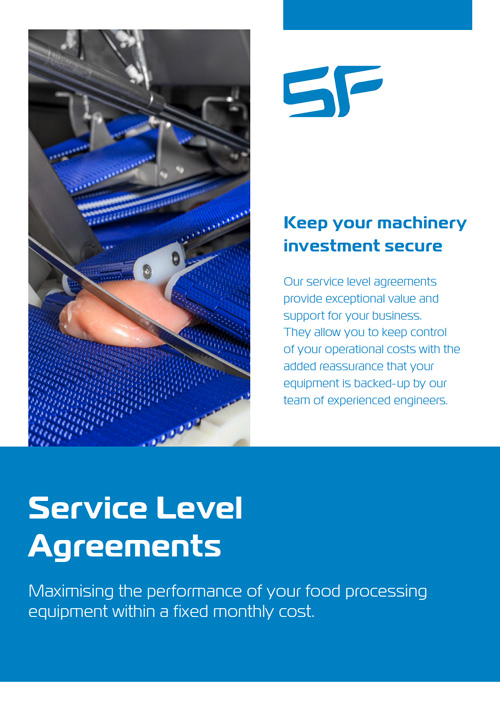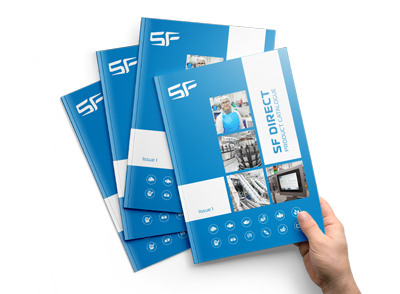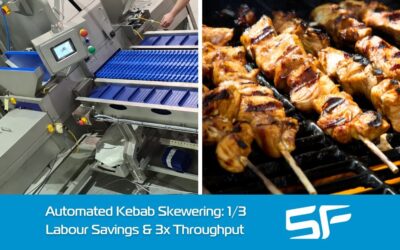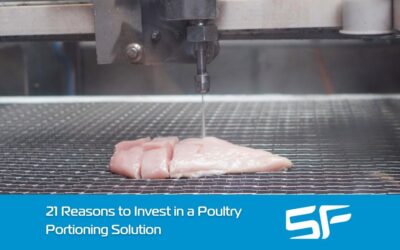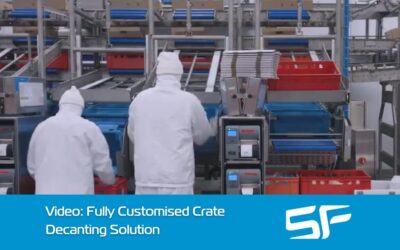Food Manufacturing Solutions – the Importance of Full Equipment Lifecycle Support
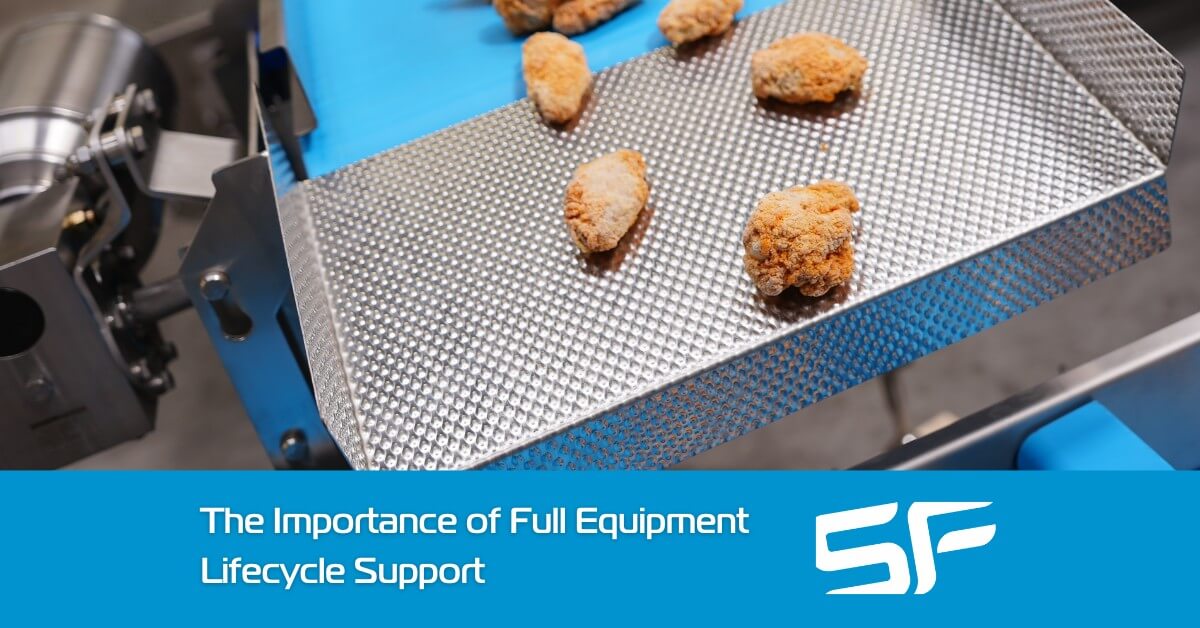
When your food production lines and all the equipment on those lines operate efficiently and predictably, your entire business runs smoother, from the factory floor to administrative functions and all the way to your customers. Achieving this ideal of all lines, machines, and equipment operating as they should requires full equipment and solution lifecycle support.
For us at SF Engineering, full lifecycle support starts at the earliest concept stages at the beginning of the design process. It then runs all the way through to the end-of-life stages, where the cycle starts again.
Throughout our history over the past 40 years, our priority has been to provide complete and tailored support to our customers at all stages of the solution and equipment lifecycle. If you walk through the factories of some of our most long-standing customers, you will see equipment we designed, manufactured, and installed decades ago. That equipment continues to perform, and we continue to support it.
The Importance of Equipment and Solution Lifecycle Support
The term equipment lifecycle applies to all equipment, machines, and other physical assets on your food production lines, from the most complex weighers or grading machines to conveyors, platforms, and hygiene equipment. However, it’s important not to stop at individual machines or physical assets, as supporting full production lines is also essential to achieve the highest levels of operational efficiency.
After all, the equipment, machines, and other physical assets on your food production lines directly contribute to the competitiveness, productiveness, and profitability of your facility. Even a machine that sits idle because it can’t be properly integrated or configured has an impact on the performance of your operation that far exceeds the purchase price. This is because the initial expectations and long-term objectives for the machine are not being realised.
Maximising Usable Life
In general terms, the longer a machine or other physical asset can be used, the better. There are caveats, especially when new technologies become available that make it more beneficial to replace an operational machine with a newer piece of equipment. In most cases, however, keeping equipment working efficiently for as long as possible is usually the best approach.
The Objectives of Full Equipment and Solution Lifecycle Support
- Ensuring the right equipment and solutions are designed and implemented in your facility. This is because one of the biggest influencing factors when a machine or solution has a high cost of ownership is that it was incorrectly designed or specified during the solution development and planning stages.
- Manufacturing all equipment to the highest standards in a way that prioritises lowering the overall cost of ownership and making maintenance tasks and processes as straightforward as possible.
- Optimising uptime and availability by ensuring maintenance work is completed as efficiently as possible. Having ready access to spare parts as well as trained and experienced engineers is essential to achieving this objective.
- Minimising unplanned downtime to as close to zero as possible. This can be achieved by using the latest technologies, including predictive maintenance technologies, that enable maintenance work to be completed before a breakdown occurs.
- Minimising maintenance costs through intelligent maintenance schedules that are tailored to your production line and operational requirements. For example, replacing parts when it makes sense to do so rather than on a generic maintenance schedule.
- Achieving consistent operational performance by ensuring equipment is not only working but working efficiently and according to its capabilities.
- Maximising operational efficiency. For example, by avoiding situations where additional operators are needed than originally planned to keep a machine operational.
- Controlling and minimising maintenance costs for more reliable budgeting and planning.
- Minimising the cost of ownership.
Expertise and Capabilities at SF Engineering
At SF Engineering, we provide comprehensive equipment and solution support across the entire lifecycle. Our expertise and capabilities include:
- Consulting and design services from the earliest scoping, feasibility, and concept stages through to the creation of production drawings.
- Manufacturing and integration as we manufacture in-house, and we have extensive expertise integrating on food production lines the world-leading equipment solutions developed by our partners.
- Installation and commissioning work that is not only reliable in terms of timescales and deadlines but also completed to the highest possible standards.
- Servicing and maintenance solutions that include predictive maintenance, on-site maintenance, remote support, and tailored SLAs.
- Spare parts with expert advice and short delivery timescales.
- End-of-life processes, including equipment disposal according to regulations and sustainability requirements, as well as going through the cycle again from the beginning.
To learn more about the full lifecycle support that we offer, and to discuss your production line or factory improvement requirements, please get in touch with us at SF Engineering today.
